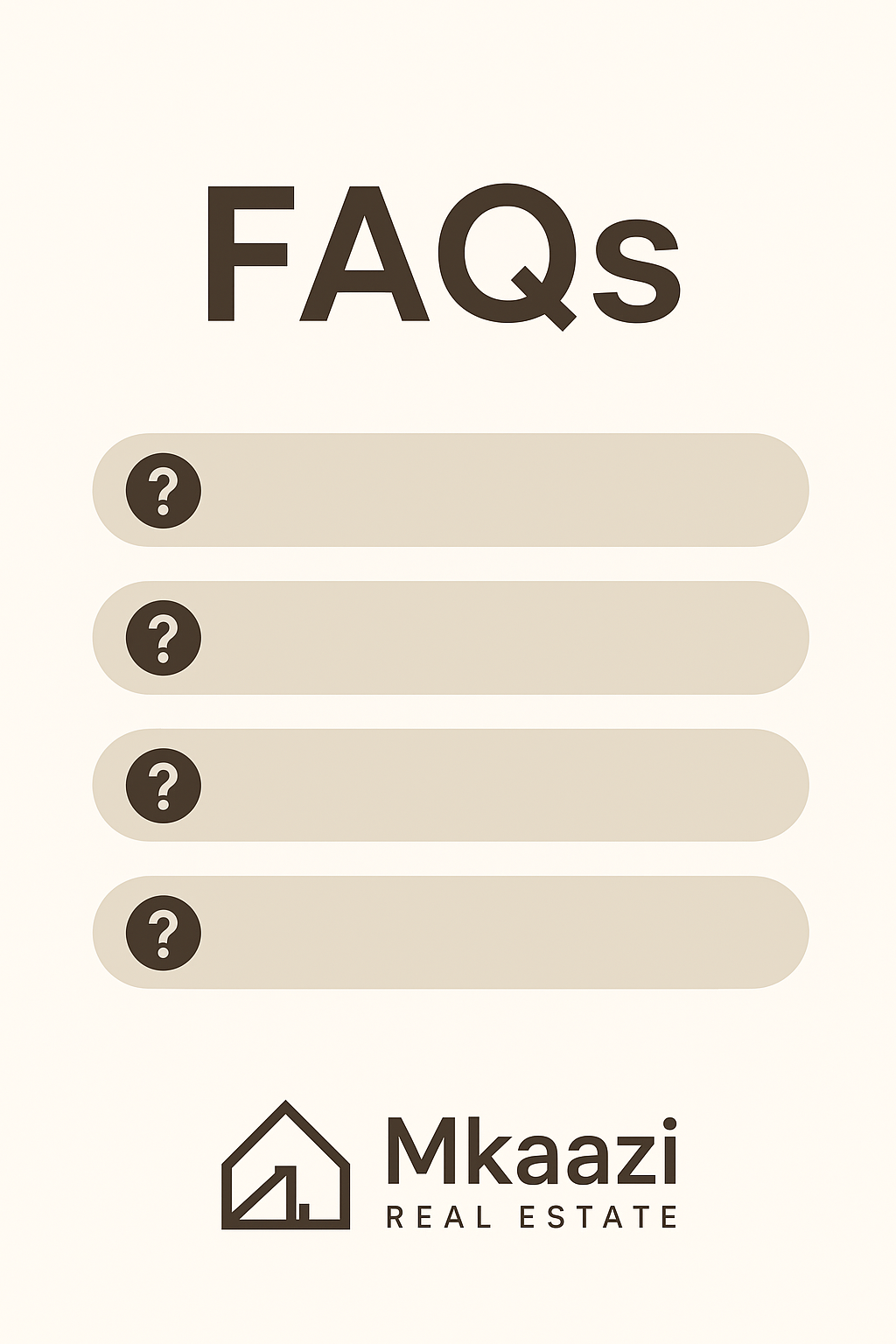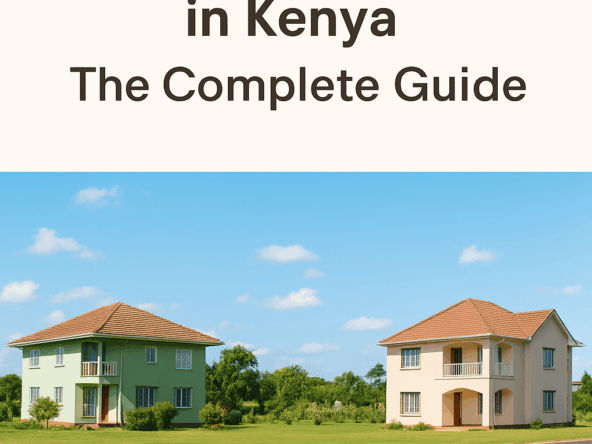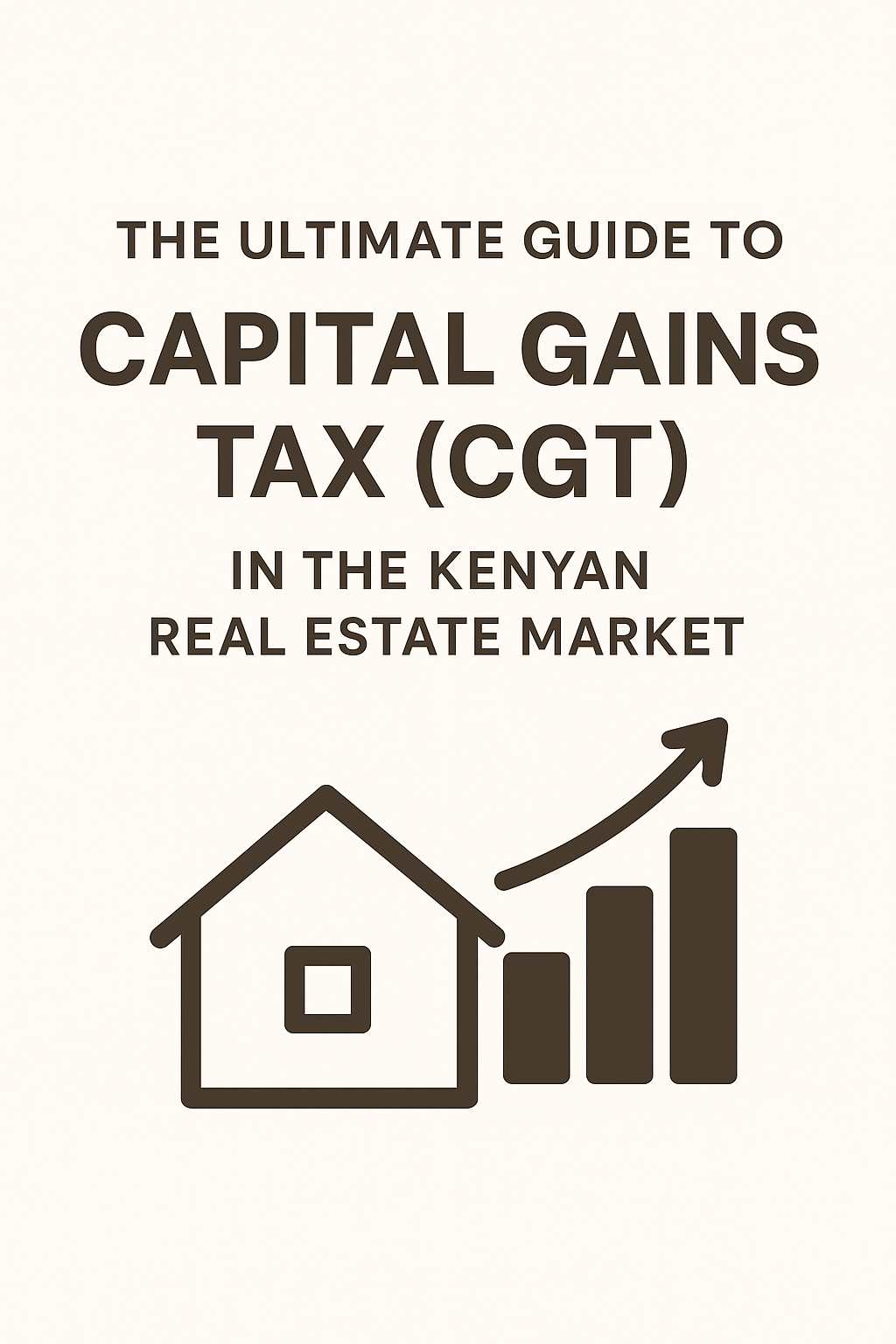Below are frequently asked questions we get from international buyers and investors. Short, clear answers — if you want any of these expanded into a printable checklist or a web page, I can make that next.
1. Can a non-Kenyan buy property in Kenya?
Yes. Non-Kenyan individuals and foreign-owned companies can buy property, but they can only hold land on leasehold for up to 99 years. You cannot acquire perpetual freehold as a foreign individual.
2. Can foreigners own freehold land in Kenya?
No (in general). Freehold is reserved for Kenyan citizens and companies that are 100% Kenyan-owned. If a foreigner somehow holds a pre-existing freehold or a super-long lease, the law treats such interests as subject to the 99-year cap and conversion rules.
3. What is the difference between freehold and leasehold?
- Freehold: indefinite ownership of land (generally only Kenyan citizens/fully-Kenyan companies).
- Leasehold: time-limited right to use the land (for foreigners this is up to 99 years). You own buildings/structures but not perpetual ownership of the ground.
4. What documents will I receive when I buy?
Typical documents after purchase and registration:
- Certificate of Lease (the registered leasehold title).
- Sale Agreement / Conveyance (contract).
- Stamp duty receipt (paid to KRA).
- Land rent / rates clearance (proof taxes/rates are up to date).
- Sectional title certificate (if you buy an apartment unit).
- Copies of survey plans / cadastral maps where applicable.
5. How does conversion of old freehold or very long leases to 99 years work?
The authorities (National Land Commission / Lands Registry) resurvey and exchange the old title for a 99-year lease. Government processing for this conversion is handled by the state and processing fees for conversion have been waived — but private survey or legal fees may still apply. The conversion aligns titles with the Constitution’s 99-year limit.
6. Do I need Land Control Board consent?
Maybe. If the parcel is classified as agricultural or falls within a land-control area, the local Land Control Board must approve transfers or leases. Land Control Boards are often reluctant to approve transfers to foreigners — farmland purchases are the most restricted category.
7. Can I buy agricultural (farm) land as a foreigner?
Directly, usually no. Most agricultural land transfers to non-citizens will be refused unless specific legal exceptions apply (e.g., structure via a company that lawfully meets Kenyan ownership tests). If farmland is your target, you’ll need specialised legal structuring and local counsel.
8. What about buying an apartment (condo/flat)?
Apartments are governed by the Sectional Properties Act. You’ll get a unit certificate (lease) for your unit and a share in the common property — for foreigners this is typically recorded as a 99-year lease for the unit.
9. Do I need a Kenyan lawyer?
Yes. Conveyancing and land registration require a licensed Kenyan advocate to do title searches, prepare transfer documents, file at the Lands Registry, and liaise with KRA and any Land Control Board.
10. Do I need a KRA PIN?
Yes. You need a Kenyan Revenue Authority (KRA) Personal Identification Number for tax/stamp duty transactions and to register certain documents.
11. What are the main costs I should budget for?
Typical fees (will vary by deal):
- Stamp duty (commonly 4% in urban areas, 2% in rural areas — check current KRA guidance).
- Legal/conveyancing fees (typically ~1–2% of price, negotiable).
- Registration & survey fees (small registry fees; survey costs if needed).
- Land Control Board fees (if LCB consent is required).
- Annual lease rent / ground rent (usually nominal).
Banks and foreign-transfer fees should also be budgeted.
12. Can I mortgage a leasehold property?
Yes — Kenyan banks lend against leasehold titles, but they pay attention to remaining lease term. Longer residual years (e.g., 60–99 years remaining) are more favourable to lenders.
13. What happens when the 99-year lease expires?
At expiry the land reverts to the state unless renewed. Renewal for non-citizens is not guaranteed by law. Practically, most modern 99-year leases have many decades remaining, but treat leasehold as a long-term finite interest in estate planning.
14. Can I pass a leasehold property to my heirs?
Yes. You can transfer or bequeath your leasehold interest to others (subject to transfer formalities, any lease conditions, and Land Control Board rules if agricultural). Estate planning and wills should be prepared with Kenyan legal advice.
15. Can I rent out or sublet my property?
Usually yes, but check the lease conditions. Some leases restrict subletting or commercial use without consent. Apartments commonly allow short-term leasing but verify condo/management rules.
16. Is beachfront land open to foreigners?
Beachfront properties are often sought by foreigners and can be leased to non-citizens, but coastal land can involve additional zoning, environmental, or planning checks. Recent litigation and regulatory attention means due diligence is essential.
17. Are there common scams or red flags?
Watch for:
- Sellers asking for large private transfers before registered contract/escrow.
- No cadastral plan or unclear parcel numbers.
- Multiple caveats or pending disputes on title.
Always do a title search and use escrow/verified bank transfers.
18. Can I use a Kenyan company to buy land and avoid the 99-year rule?
Only if the company is 100% Kenyan-owned will it be treated as Kenyan for land rights. If the company has any foreign owners it’s still treated as foreign and the 99-year rule applies. Transparency of beneficial ownership matters.
19. How long does the purchase process take?
Times vary by transaction complexity and whether Land Control Board consent or resurvey is needed. Simple urban transfers (clean title, no LCB) are usually faster; agricultural or conversion-required transactions take longer. Your lawyer and agent can give a realistic timeline for a specific deal.
20. Are government fees charged for converting old long leases to 99 years?
Conversion processing by the relevant authorities has been implemented without charging processing fees for the conversion itself — however private surveyor and legal fees are often still payable.
21. What are my first steps if I want to buy?
- Decide location & property type (apartment, villa, plot).
- Instruct a Kenyan agent and lawyer to run a Lands Registry search and confirm land classification.
- Confirm whether Land Control Board approval is required.
- Arrange safe payment methods and a KRA PIN.
Mkaazi can take you through each of these steps.
22. How can Mkaazi Real Estate help me?
We offer end-to-end services:
- property sourcing and area advice;
- title searches and due diligence coordination;
- introductions to vetted conveyancing lawyers and surveyors;
- assistance with escrow and bank payment processes;
- post-sale support (property management, rentals, resale).
We specialise in assisting international investors and diaspora clients.
23. Where can I read the actual laws or official guidance?
Look up:
- Constitution of Kenya (2010) — Article 65 (non-citizen landholding).
- Land Registration Act (2012) and Land Act (2012).
- Land Control Act (Cap. 302) (for agricultural land approvals).
- Sectional Properties Act (for apartments).
- Kenya Revenue Authority (KRA) for stamp duty guidance.
(We can provide links or a PDF with citations if you’d like.)
24. Can you make this FAQ downloadable or website-ready?
Yes — I can:
- email us on info@mkaazirealestate.com and we will send it your way.
- More info on this topic in this blog on how to buy property safely as a foreigner in Kenya.
Need help buying a property in Kenya as a non-citizen? Reach us today for a free consultation on info@mkaazirealestate.com or call +254 763 56 8989.





